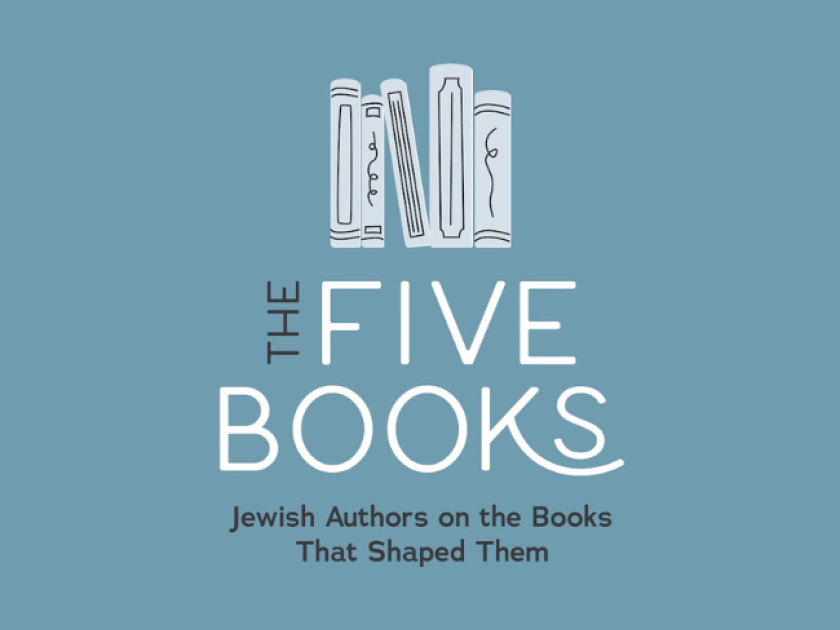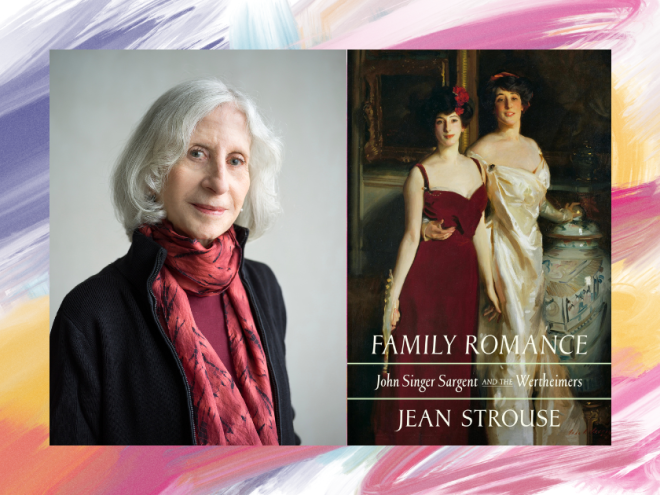
At a time when many Jewish writers in the US and abroad are being blacklisted by both other writers and publishing professionals, new spaces are being created to support Jewish authors. One outstanding new platform that JBC is proud to support in an advsiory capacity is an innovative book podcast launching on December 3rd, The Five Books, founded and hosted by Tali Rosenblatt Cohen. In the following conversation, Rosenblatt Cohen and I discuss why she created the podcast, how it will work, and what her hopes and goals are for it.
Carol Kaufman: Congratulations on the launch, Tali! How long has The Five Books been in the works?
Tali Rosenblatt Cohen: I have been in conversation with Jewish Book Council since last winter about what’s been happening in the publishing space — the way the world seems to be closing in on Jewish authors — and wondering what new platforms are being launched in response. I have had the honor of working with JBC through my involvement on the Natan Notable Books committee and have seen firsthand the incredible ways that they pivoted and stretched post – October 7th. They’ve become an amazing support system not only for Jewish authors but also for those in the publishing industry who are feeling alone. I landed on the idea for The Five Books as a way to create a space for Jewish authors and also to celebrate Jewish books at large. Many wise friends have helped along the way, but especially Miri Pomerantz Dauber and Naomi Firestone-Teeter of JBC!
CK: Is the name a reference to the Five Books of Moses?
TRC: Yes! I wanted to reference our foundational books as a way to talk about books that have been central to each author. We are, of course, the people of the book, and it all goes back to the Five Books. Also, I love a good top-five list!
CK: Please tell us about the five categories you chose to structure each podcast.
TRC: I ask each author (in advance) to select five books: one Jewish book they read in childhood that impacted their Jewish identity; one Jewish book they read in adulthood that has shaped their Jewish identity; and one book (not necessarily Jewish) that’s changed their worldview. I then ask them to share a quick recommendation for what they’re reading now, and of course, we discuss the book they’ve just published.
I wanted to get at the ways books help construct our identities, but I also thought these questions would be fun for authors to respond to and would make for rich conversations.
CK: What do you hope to accomplish with the podcast?
TRC: I know that when I read a great book, I just want to spend more time in that world, with those characters. So I hope it’s an opportunity for people to do that and hear the author reflect on the book they’ve written in a different way. I also think that when you meet someone who loves the same books you do, there’s an immediate connection. I like the idea that a favorite author might talk about a book that impacted them and that all these listeners who share that attachment to a beloved book are then linked.
I hope we can add more texture to talking about Jewish life and explore just how many variations there are within the Jewish experience. And I hope people read and buy more Jewish books!
CK: Who is your audience?
TRC: Anyone who is interested in books or Jews, or Jewish books, or really anyone who has read any of these books and thinks, I want to know more about that book or that author.
CK: I’d like to ask you one of your own questions: Which Jewish book had the greatest impact on you as a young reader?
TRC: It’s funny, because this is the only one of the five I have a clear answer to! I loved the picture book Sarah Somebody by Frances and Louis Slobodkin when I was young. It’s the story of a little girl in a shtetl around the turn of the century. Her father is a teacher and her brothers go to heder, but Sarah must help take care of her younger siblings. When a woman starts a school for girls, Sarah’s family scrapes together the money for her to attend. She learns to read — something her mother and grandmother are in awe of, as neither of them can write their own name.
I think this really resonated with me; I loved hearing my grandfather’s stories of his childhood in a tiny shtetl in Poland, of going to heder. I also grew up in an Orthodox community, and this book definitely appealed to my feminist streak. The joy when Sarah reads a page aloud to her classmates is amazing.
CK: Can you give us the lineup of authors so far?
TRC: I don’t want to leave anyone out! I got to talk to so many fantastic authors: Yael van der Wouden (The Safekeep, which was shortlisted for the Booker Prize); Benjamin Resnick (Next Stop), a debut novelist and rabbi; Jean Meltzer (Magical Meet Cute), “the queen of Jewish romance” who also went to rabbinical school; Zibby Owens (On Being Jewish Now), who is a powerhouse in publishing and was so generous; Samantha Greene Woodruff (The Trade Off), who writes incredible historical fiction; the amazing and indefatigable Francine Klagsbrun (Henrietta Szold); and more! It’s primarily authors of fiction and memoir, but I really wanted a range in terms of the kinds of books that are featured. Also, all of the books were ones that I just loved reading!
CK: The idea for the podcast came to you after October 7th. How has October 7th figured in the interviews you’ve completed?
TRC: Maybe not surprisingly, it has come up in almost every interview. All of us, I think, are still trying to orient ourselves to what Jewish life looks like now — and of course that changes every day. All the authors I’ve talked to wrote their books before the events of October 7th and are now trying to figure out how those Jewish stories land in 2024. Many of the authors also found themselves on blacklists, having been labeled Zionist authors, maybe for posting a commemoration to the victims of 10/7 or maybe just for having posted about a family trip to Israel. The idea of writers trying to silence other writers is just anathema to me. Sharing our stories is how we understand each other, and we need more avenues for empathy, more bridges, not fewer. I hope the podcast, in lifting up Jewish authors, becomes one more point of connection.
CK: We wish you great success with it!
Carol is the executive editor of Jewish Book Council. She joined the JBC as the editor of Jewish Book World in 2003, shortly after her son’s bar mitzvah. Before having a family she held positions as an editor and copywriter and is the author of two books on tennis and other racquet sports. She is a native New Yorker and a graduate of the University of Pennsylvania with a BA and MA in English.



